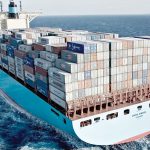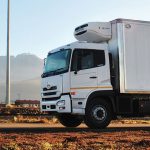As luck would have it

December certainly proved eventful across much of the economic spectrum.
Sitting in Colesberg on the first leg of my holiday, I eagerly watched the ruling party policy conference unfold, while (along with many others) mentally crunching up whether 2018 will bring about an economic recovery, or whether we are going to have to explain why this year isn’t the year that everything rights itself.
Although close, the victory of Cyril Ramaphosa left many in the economic sphere with a sense of cautious optimism. Ramaphosa inherits a party divided severely along factional lines. However, he steps into a role of party president at the time when an economic recovery seems to be a distinct possibility.
At the end of 2017, the latest gross domestic product (GDP) figures for the third quarter showed a recovery across the major industries of mining, manufacturing and agriculture. Even activities with limited production showed signs of drawing down on inventories.
Poor business and consumer confidence depressed growth in the truck market for much of 2016 and 2017. Finance Minister Malusi Gigaba noted in the medium-term budget policy statement that bringing about a return of confidence is one of the easiest and cheapest ways to return the country to a faster economic growth track.
While confidence still remains weak, there are signs that some things will work in Ramaphosa’s favour. For one, rand strength has surprised on the strong side. Added to that, the global economy is continuing to recover, as are risk appetites geared towards emerging economies.
The positive reaction to the election of Ramaphosa helped the rand push into under R12,50 at the time of writing. With that, a sharp drop in fuel prices was announced in February, despite crude oil prices rising.
While rand strength continues, the petrol price will continue to provide relief to transport operators. The stronger rand should also help keep inflation in check and interest rates stable, to a point where financing conditions may stabilise.
With the return of business confidence, we forecast that investment should pick up from the doldrums of close to zero-percent growth that characterised 2017. As we highlighted through client discussions last year, the demand for trucks and fixed investment track closely together, and so a significant pick up in investment should see truck sales perform better in 2018.
Admittedly, I believed a similar story at the beginning of 2017. A recovery appeared in order and demand was accelerating, until political events surrounding the cabinet reshuffle forced confidence into a hasty retreat, and the potential gains of last year were surrendered to a self-inflicted weak domestic economy.
With his substantial experience in business, Ramaphosa will know that political setbacks, like we saw throughout last year, will damage his chances in 2019.
Further, if rumours are to be believed, his ascendency to the presidency might happen sooner rather than later. A strong economic recovery would be an ideal way of cementing his position as the best candidate to take the country forward.
Published by
Sam Rolland
focusmagsa




